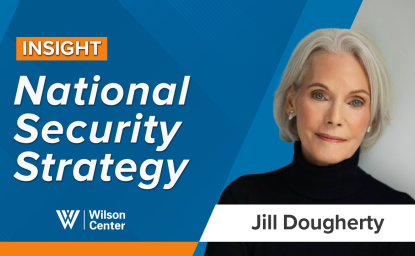By Lee H. Hamilton and Nancy Kassebaum Baker
We've all heard the commentators say it: The next president–whether it's George W. Bush or Al Gore–will be a lame duck from day one. The fiercely contested outcome of the election, combined with a new Congress nearly evenly split between the two major parties, predestines him to a term of ineffectiveness, according to the pundits. Some have even suggested, only half in jest, that the loser will get the better of the deal because he will be able to run in 2004 against a weak incumbent with little to show for four years in office.
The mandate of our 43rd president will, indeed, be limited. But mandates are, to a great extent, what a president makes of them. While the new president will face many constraints, he will have the full powers of the presidency and, therefore, the opportunity to exert great influence. As soon as he takes that oath of office, he will have–as no other person does–the ear of the American people and the ear of people around the world.
His task will certainly not be easy, and the bickering and inflammatory rhetoric since Election Night have unquestionably made it more difficult. Reconciliation will be impossible as long as both sides continue to accuse each other of trying to steal the election. Both candidates have asked their counsel and supporters to refrain from the kind of divisive allegations that have filled the airwaves during the past 10 days. That's a start. Even better, they should attempt to agree on a way out of this impasse.
Once the election's outcome is resolved, the new president must acknowledge that he barely won–and pledge to earn the support of those who did not vote for him. The loser, for his part, must accept the legitimacy of the result and call off any pending legal challenges.
The new president must then set a tone of bipartisanship that goes beyond mere lip service–by naming members of the other party to his Cabinet, reaching out and consulting extensively with the leaders of the other party and proposing a centrist legislative agenda. To succeed, both Gov. Bush and Vice President Gore would have to abandon their more ambitious, or radical, campaign proposals.
This will mean, for instance, that a President Bush would need to give up his hopes for a large across-the-board tax cut, and a President Gore would have to scale back some of his proposals for new spending. Throughout his tenure, the president will need to be flexible, and willing to compromise in response to congressional and public opposition. He must truly be, in Gov. Bush's phrase from the campaign trail, "a uniter, not a divider."
In this respect, the next president's qualified mandate may be a blessing in disguise. The American people are not looking for revolutionary change. They want instead a president who can move us forward incrementally on the key issues they are concerned about, such as health care, education and Social Security. It is all to the good if the close election forces the new president to govern from the center and makes it less likely that he will squander our projected budget surpluses on an enormous spending or tax-cutting binge.
President Bush or Gore also will have a great advantage working in his favor: The American people are broadly content. Indeed, that is the real and significant story of this year's election. The close outcome does not mean that our country is deeply divided. Rather, it means that we are evenly divided–which is why the two parties have been moving toward the center with broadly appealing agendas. Our nation is enjoying economic prosperity, improved standards of living, and relative tranquility at home and abroad. This has made the electorate, thankfully, less ideological and less partisan than it was several years ago. Many of us want to see changes in the campaign process and in the tone of Washington, but we do not want the country to change its current course radically. In that sense, our next president should be able, if he has the necessary political skill, to tap reservoirs of goodwill across the country.
Of course, there will be partisanship, dispute and gridlock in Washington–probably a lot of it–during the next four years. Members of Congress will quickly focus on the 2002 mid-term elections and the president will before long be thinking about 2004. Pressure groups will encourage politicians of both parties to stand firm on issues of concern to them rather than compromise in order to achieve consensus. That is simply the nature of politics in our country today.
But, for now, instead of prematurely consigning the duly elected president of the United States to the dustbin of history, let us rally behind him and see what he can do. We might be pleasantly surprised.


